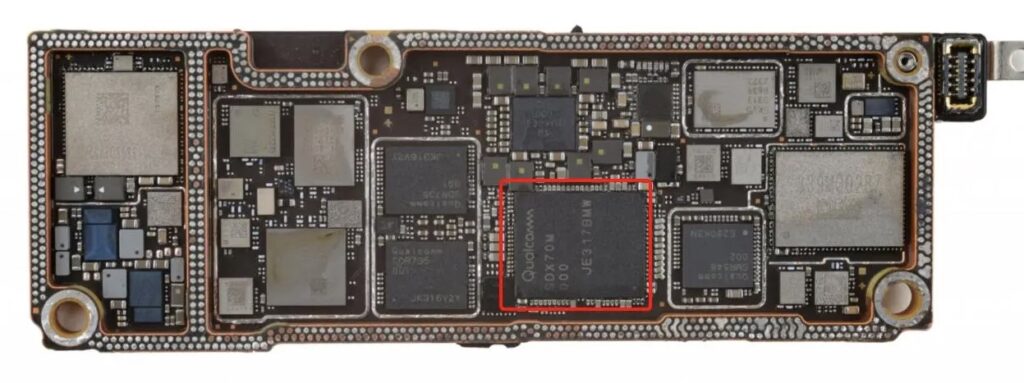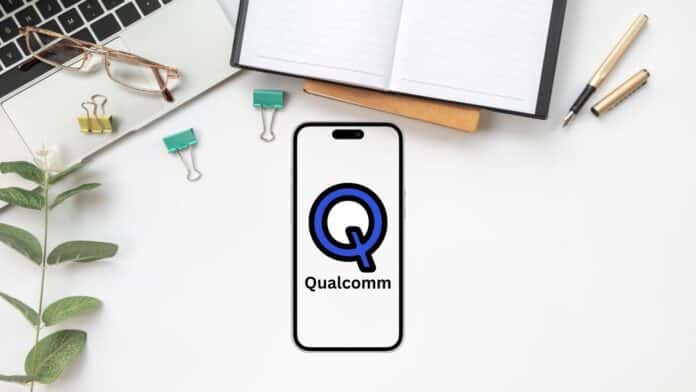The tech world is abuzz with the latest revelation from Apple — the extension of its worldwide patent licensing arrangement with Qualcomm until March 2027. In a surprising move, Apple has decided to continue its partnership with Qualcomm, putting its in-house modem plans on hold.
Table of Contents
Apple’s Extended Qualcomm Deal
In a surprising turn of events, Apple has prolonged its agreement with Qualcomm, the leading provider of 5G modems. This decision came after Apple initially planned to develop its 5G modems and faced multiple delays.
Apple’s Initial Plans for In-House Modem
Last year, Apple announced its intention to venture into the world of in-house modem development. The tech giant even acquired Intel’s modem patents and hired a substantial workforce to kickstart this ambitious project.
Renewal of Qualcomm Deal
However, Apple has opted to renew its modem license agreement with Qualcomm until March 2027, raising questions about the company’s challenges in its in-house development.
Qualcomm CEO’s Statement
Qualcomm CEO Cristiano Amon confirmed the extension during the company’s first earnings conference in 2024. Amon reassured that Qualcomm would continue licensing its 5G modems to Apple, adding a year to the previous agreement.

Apple’s Silence on the Agreement
Surprisingly, Apple has remained tight-lipped about the extended pact with Qualcomm. The silence has fueled speculation about the dynamics between the two tech giants.
Apple’s Efforts in In-House Modem Development
Apple’s pursuit of in-house modem development dates back to 2019 when it acquired Intel’s modem patents for a whopping $1 billion. The company aimed to reduce reliance on external providers and have more control over its hardware.
Acquisition of Intel’s Modem Patents
Despite the significant investment and acquiring a pool of Intel’s experienced workforce, Apple’s in-house modem development faced unexpected challenges.
Challenges in In-House Modem Development
The intricate task of reworking code and navigating existing patents posed obstacles for Apple’s modem development team. These challenges have contributed to the extended collaboration with Qualcomm.
Apple’s Lag Behind Qualcomm
Reports suggest that Apple is trailing Qualcomm by at least three years in developing a processor that can match or outperform Qualcomm’s offerings. The delay in Apple’s roadmap has raised concerns among enthusiasts eagerly awaiting an Apple-designed 5G modem.
Report on 5G Modem Chip Postponement
In 2023, Bloomberg reported a significant delay in Apple’s 5G modem chips, pushing the expected release to late 2025 or 2026. This setback forced Apple to revise its original timeline for in-house modem deployment.
Delays in Apple’s Original Timeline
Initially, Apple aimed to have its in-house modem chip available by 2024. However, this goal proved elusive, leading to subsequent delays in product releases, including the iPhone SE 4.
Rumors of Abandonment
Speculations have surfaced, suggesting Apple might have abandoned its 5G modem development efforts. Apple’s lack of official statements adds an air of mystery to the situation.
Future iPhones and Qualcomm’s 5G Modem
With the extended deal, it’s clear that upcoming iPhones, including the iPhone 16 series, will feature Qualcomm’s 5G modem processors. This decision indicates Apple’s reliance on Qualcomm’s technology for the foreseeable future.
X75 Modem in iPhone 16 Pro
Notably, the iPhone 16 Pro versions are expected to utilize Qualcomm’s cutting-edge X75 modem, promising enhanced 5G performance. This choice reinforces Apple’s commitment to delivering top-notch mobile experiences to its users.
Conclusion
In conclusion, Apple’s decision to extend its Qualcomm deal underscores the company’s challenges in developing its 5G modems. The delay in Apple’s in-house modem plans raises questions about the company’s future strategy and the competitiveness of its upcoming devices.












